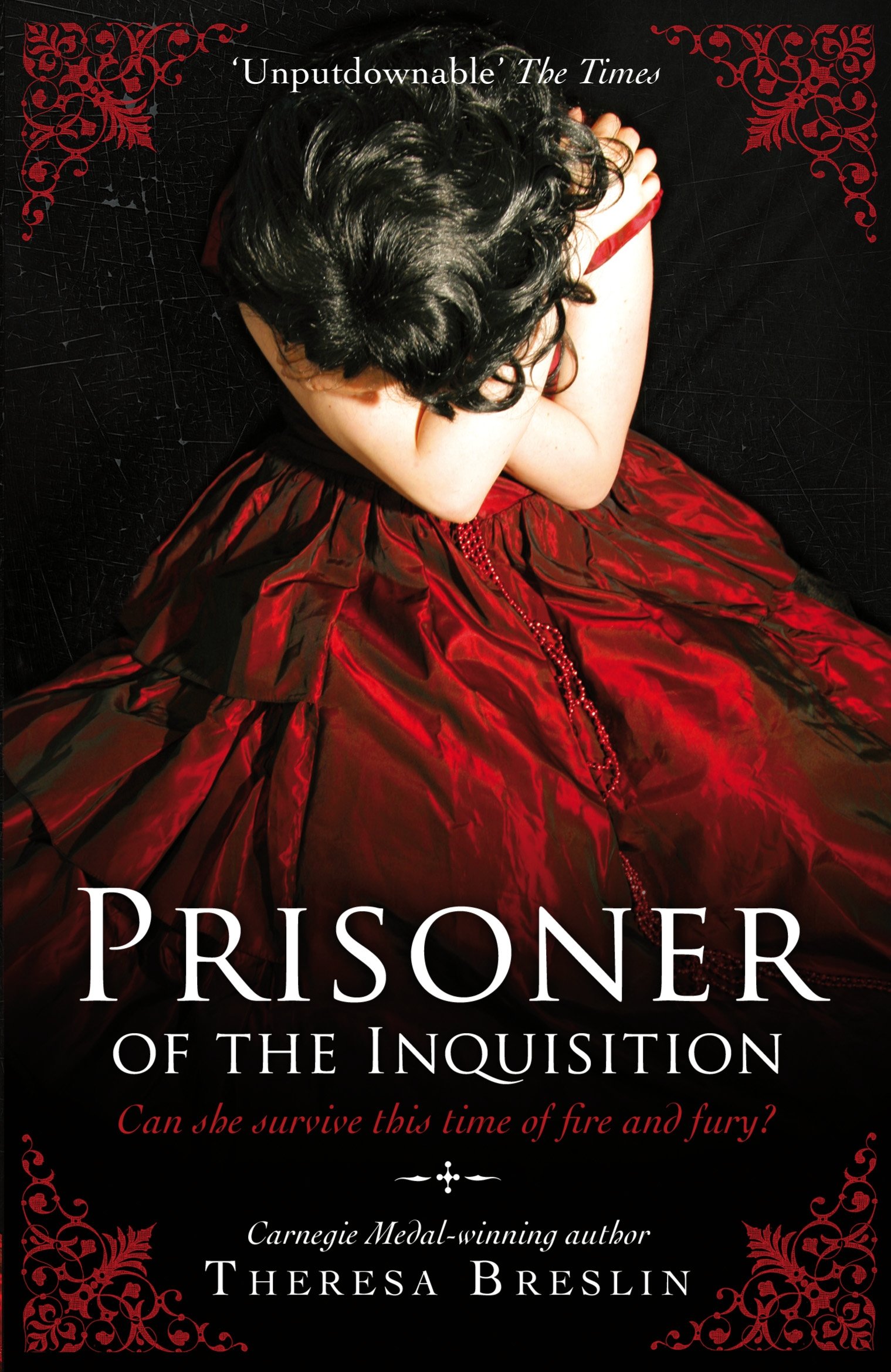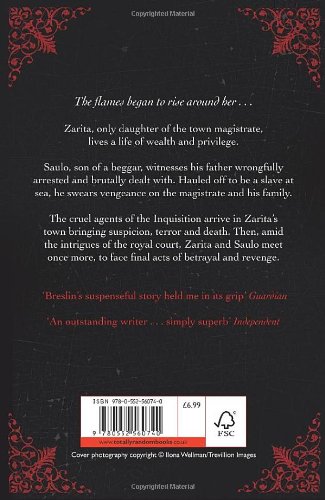‘Unputdownable’ The Times
…’impressive…’ (Amanda Craig in The Times.)
‘Breslin’s ability to weave a well-researched, page turning plot around sympathetic, believable characters has been displayed before in The Medici Seal and The Nostradamus Prophecy…unputdownable.’
The Guardian (Linda Buckley-Archer is gripped by a novel set in 15th-century Spain)
Following on the heels of The Nostradamus Prophecy and The Medici Seal, Breslin’s latest offering is set in Spain in the 1490s. Isabella of Castile and Ferdinand of Aragon are joint rulers and the infamous Tomás de Torquemada, Grand Inquisitor, is making his presence felt in the land.
Prisoner of the Inquisition tells the tale of two teenagers: Zarita, daughter of a wealthy magistrate, and Saulo, son of a beggar, whose fates dovetail as a consequence of a heart-stopping incident. This is a tale of personal revenge, of courage and betrayal, of the power of romantic and familial love, of social inequality and religious intolerance.
Breslin’s writing is expertly paced, never self-indulgent or pretentious, and it works hard to create a viable fictional world.
There is a terrific scene featuring the Grand Inquisitor… There is real jeopardy here, and terrible injustice, and I am certain that the social and moral aspects of this story will speak strongly to a teenage readership.
TheBookbag.co.uk (Linda Lawler gives Prisoner of the Inquisition a *****Five Star review)
‘…the world of fifteenth century Spain. King Ferdinand and Queen Isabella are fighting the Moors in Granada, Christopher Columbus is seeking royal funding for a voyage to prove the world is round, and the Inquisition is spreading terror and anguish throughout the land. And against this background of momentous events, we have the thrilling and beautiful account of the lives of two young people, bound together by hatred and love.
Zarita and Saulo are enemies. She starts off as a silly, spoiled and naive girl who makes such a fuss when a beggar asks her for money that it is assumed he assaulted her, and her father, the local magistrate, orders the man to be hanged immediately. Saulo wants revenge: to him, the murder of his enemies is quite justified, and he sets about the task of killing Zarita and her family with cold efficiency. But he is at the same time a warm and caring young man, who more than once risked his life to save his companions…, and the two first-person accounts allow the reader to better understand that morality was seen differently in the past.
Many things are not what they first seem in this book. People act for selfish or twisted motives, … But the characters in this inspiring book are also capable of great sacrifices for love and for family, and… takes on enormous grandeur and significance. In such an atmosphere, and after such a story, a conventional ‘happy-ever-after’ ending is nigh on impossible, but readers will close the book with a sense of peace and reassurance that despite the worst things humanity can do, nobility and love will always endure.


